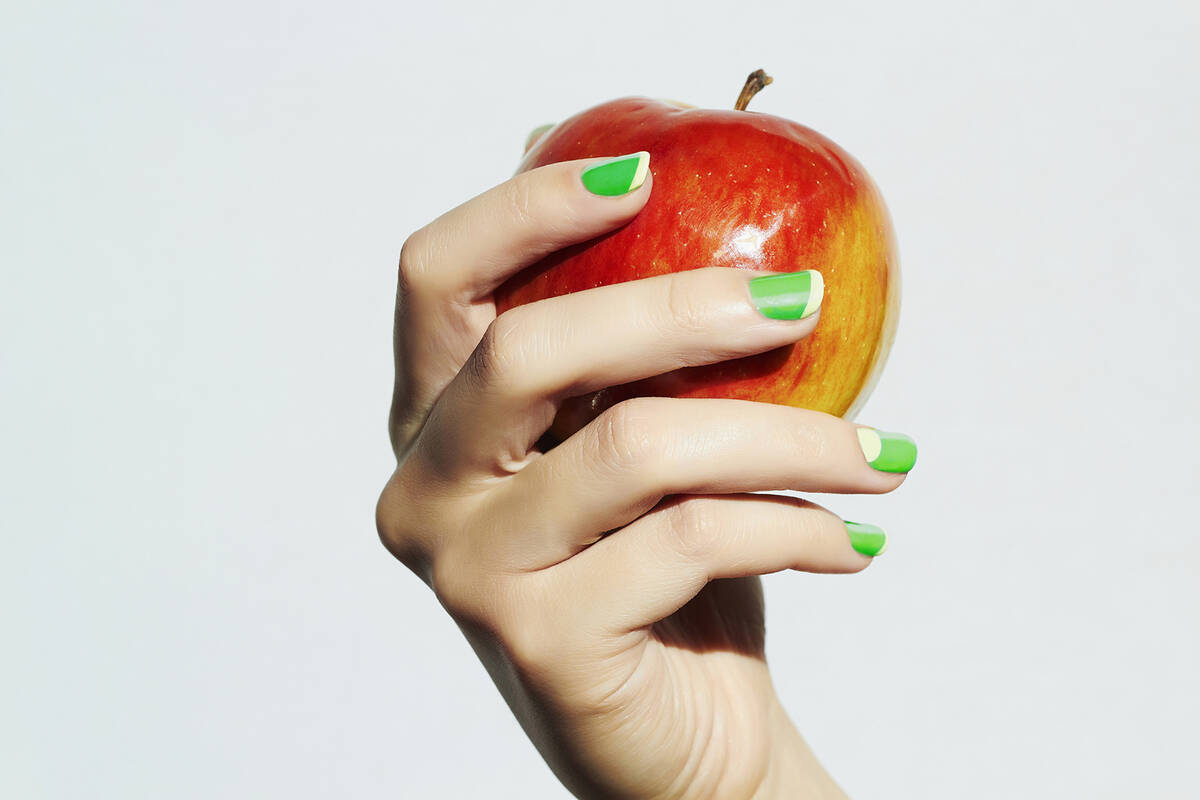Unpleasant side effects of eating a more healthful diet
Question: My doctor recommended that I add more fruits and vegetables to my diet. I have slowly increased my intake over the past two months, but lately I have begun to experience increased gas and bloating. Are there certain foods to avoid to limit abdominal distress? How can I embrace a more healthful diet but banish the discomfort?
Answer: Congratulations on working to embrace a more nutritious diet. Incorporating more fruits and vegetables, which provide valuable fiber, is a step in the right direction to help manage cholesterol, blood pressure, blood sugar and overall weight. However, if you are not used to consuming fiber-rich foods, you will want to do so slowly to avoid bloating and abdominal pain.
The amount of fiber each person needs is based on age. Generally, men 50 and younger should aim for 38 grams of fiber daily, and women of this age range should target 25 grams daily. As we age, fiber intake recommendations decrease. Men 51 and older should aim for 30 grams of fiber daily and women for 21 grams daily.
Also, be mindful that certain foods — and drinks — can trigger excess digestive discomfort. Consider avoiding some common offenders, and you can continue on your path to a more nutritious lifestyle.
Fruits with high fructose content
Many people avoid fruit because it has sugar, including fructose and sorbitol, which can cause inflammation and gas. But fruit contains fiber, which is important for a healthy diet, and beneficial vitamins and minerals. Avoid fruits that are high in fructose, such as apples, pears and watermelon. Instead, choose bananas, oranges, cantaloupe and darker-hued fruit — such as blackberries, blueberries and strawberries — which contain valuable antioxidants.
Beans and lentils
Though beans and lentils are excellent sources of protein and fiber, these foods also contain complex sugars called oligosaccharides, which cause bloating and gas as they pass through the digestive system. To reduce the amount of sugar, always rinse canned beans and ensure they are thoroughly cooked. Cooking beans until they are very soft helps decrease gas production.
Alternative, easier-to-digest options that won’t cause as much bloating include tofu, tempeh and quinoa.
Cruciferous vegetables
Broccoli, cauliflower, Brussels sprouts and cabbage are among the most challenging to digest because of their complex fibers, which tend to ferment in the gut, causing gas and bloating. Alternative nutrient-rich foods that are easier on the gut include dark leafy greens such as kale, spinach and Swiss chard.
Onions and garlic
Many allium family varieties, including red and yellow onions and garlic, can be difficult to digest. This is because they contain something called fructan, which can ferment in the gut and cause nausea, bloating, gas and diarrhea. To reduce sensitivity, cook the vegetables well or soak in water for at least 15 minutes if eating them raw. You may also consider using powdered versions — although some people may still have sensitivity.
To enhance flavor in your dishes, look to alternatives such as celery, fennel, shallots or chives. You can also add other spices and herbs such as basil, ginger and oregano to add depth to your meals without the fear of digestive issues.
With some adjustments, you can ease the bloating and discomfort you currently experience. Additional tips include:
Eat smaller meals, more frequently. Instead of eating large meals, eat smaller portions more frequently throughout the day. This approach can help your digestive system process food more efficiently, reducing the chances of bloating.
Eat slowly. Taking time to chew your food thoroughly can help ensure that food is properly broken down in your mouth, which aids digestion and reduces the strain on your stomach. This also helps you to avoid overeating, which can put unnecessary pressure on your digestive system and cause more bloating.
Stay hydrated. Ensure you drink enough water daily to support healthy digestion. Being properly hydrated helps move food smoothly through your digestive tract.
Avoid carbonated beverages. Soda and other carbonated beverages introduce excess air into the digestive system, which leads to more bloating and gas. Instead, drink still or flat water or try peppermint, chamomile or ginger tea after meals, which can help promote digestion and soothe your gut.
Keep a food journal. As you adjust your diet, consider tracking what you eat and how you feel afterward in a food journal. This practice can help you identify specific trigger foods and let you make further adjustments for your comfort.
Hopefully, by incorporating small changes, you can continue enjoying your new diet without unpleasant side effects. Fiber has many benefits, including improved gut health over time. However, if you find that you still experience bloating, gas or other abdominal discomfort, talk with your primary health care specialist. He or she can rule out food allergies or other conditions.
Dr. Christine Nguyen specializes in family medicine with the Mayo Clinic in Jacksonville, Florida.













